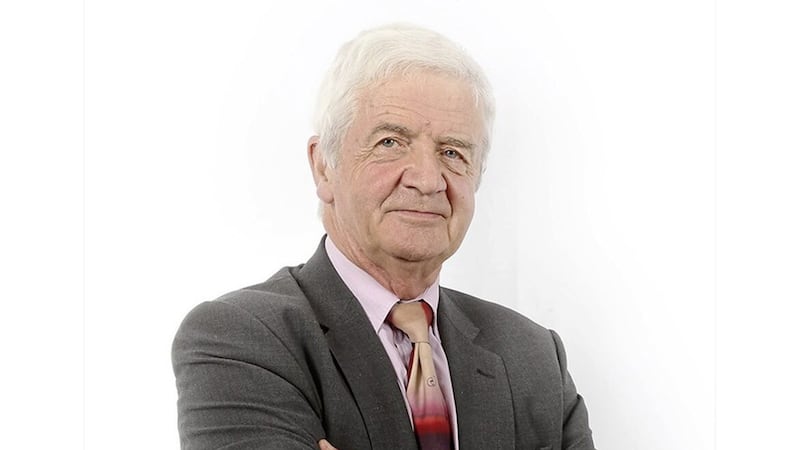WHEN placards at anti-immigration protests attack Mary Lou McDonald, we appear to be entering an era of unease and uncertainty in Irish society.
SF is often seen as Ireland’s party of protest, but it has now become the target of street demonstrations, which claim that Ireland has too many immigrants.
How much of this social unrest will be translated into political change remains to be seen, but SF’s populist path to government in Dublin is now less certain. This new anti-immigration lobby represents competition for SF in the Irish populist market.
Welcome to a new and politically unpredictable Ireland.
Currently the south is home to about 74,000 migrants, comprising 54,000 Ukrainians and 20,000 asylum seekers. A year ago the total number was 7,500. An unknown number are expected to arrive this year.
Racial and ethnic tensions arise when there is a sudden coming together of diverse peoples at a time, and in an area, of social and economic deprivation. The northward movement of six million African Americans from the southern US states after 1910 created racial tensions and violence in major industrial cities such as Chicago, Cleveland and Detroit.
Irish immigrants to the US in the post-Famine era experienced massive anti-Catholic, violent opposition. It was typified by the secret Know-Nothing movement, which John Mitchel described as foolish and filthy.
So what is happening in Ireland is neither new nor unexpected.
There are currently two main immigration streams: Ukrainians, mainly women and children, fleeing the war, and asylum seekers.
As the Irish government tries to sidle away from neutrality, it is tempting to conclude that whereas the Irish people offered refuge to Ukrainians out of understandable compassion, the government may have indulged in an overdose of allegiance to the EU and the US.
Certainly there was poor government preparation for the Ukrainians. While that is understandable up to a point, former Justice Minister Micheal McDowell says that there is no government policy on immigration.
This has created a huge rise in non-Ukrainian refugees, half of whom are single males, as evidenced at a recent violent confrontation between Georgians and Algerians in west Dublin.
The UN Refugee Agency has said that Ireland’s asylum system appears to be ‘unravelling rapidly’, with asylum seekers ending up ‘homeless and destitute’ unless something is done.
Two main parties lead the anti-immigrant protests: the Irish Freedom Party (IFP) and the Irish National Party (INP). Irish freedom and Irish nationalism have traditionally been the political property of SF.
Both are described as far right parties, but they appear to have no coherent political philosophy beyond excluding immigrants. (Dublin commentators loftily claim that Ireland has no tradition of right wing politics. They appear to have missed the history of Irish unionism – oh, and the Blueshirts.)
The IFP claims it will run candidates in every constituency in the next Dáil election. While it will certainly haemorrhage support from government and opposition parties, its electoral success will depend on the calibre and credibility of its leadership and candidates.
There is no sign that these demonstrations will become anti-EU protests because of its open borders policy. If that happens, everything in Irish politics is up for grabs.
The most common argument against immigration is that Ireland is full. It is not. It has 69 people per square kilometre. England has 424. For the whole of the UK the figure is 272 and for us here in the North, it is 133.
Compared to the north, the south is only half full. However, until the Dublin government tackles the crises in housing, hospitals, education and social welfare, there will be increased competition for scarce resources. Its record suggests that it will fail to do so.
That failure can easily be exploited to fuel racial tensions, which could shape a new agenda for the next southern general election. Unless that agenda can be avoided, all bets are off on the composition of the next Dublin government.









